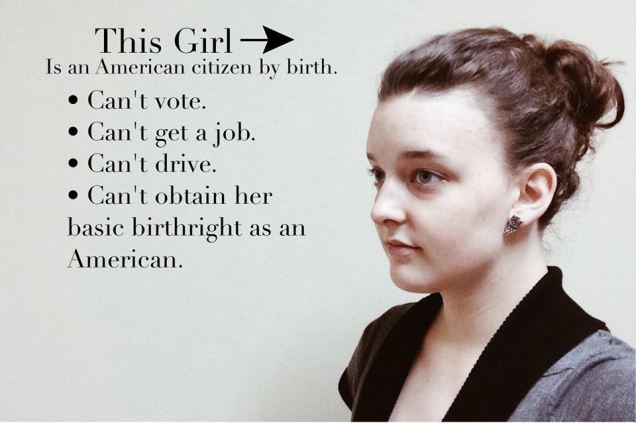
By R.L. Stollar, HA Community Coordinator
Slightly more than a week ago, a blog called Thinkers Incorporated (TI) published three posts about Homeschoolers Anonymous. TI describes itself in the following way:
Thinkers Incorporated is a unique blog devoted to the study and application of effective reasoning. With the purpose of promoting rational thought, inspiring a love for thinking, and spreading ideas worth contemplating, Thinkers Incorporated is regularly updated and promises new material for your scrutiny each week.
There are currently four writers at TI: Joseph Clarkson, Luke Adams, Owen Stroud, and Paul Hastings. From what I have read, they were all homeschooled to one extent or another. Most of them did homeschool speech or debate via NCFCA. Some have been involved with the Institute for Cultural Communicators, which is the organization that grew out of Communicators for Christ. ICC/CFC is the same organization that Nicholas Ducote and I both worked for, and also the same organization that Josh Craddock (the guy that called us “homos”) worked for.
Small world, huh?
Paul Hastings is the Legislative Liaison for the Texas Home School Coalition and also did some film work for the trailer for the IndoctriNation movie. Joseph Clarkson is currently homeschooled and recently completed an internship with the Texas Home School Coalition. (By the way, if you are wondering why “Texas Home School Coalition” sounds familiar, it is probably because either (1) it was in the news recently over the whole Ken Ham/atheism debacle, or (2) it was the group behind Texas’ “Tim Tebow” bill.) Luke Adams, who also interned with the Texas Home School Coalition, is attending Hillsdale College. Owen Stroud is a junior at Texas A&M University and interns with Texans for Fiscal Responsiblity.
When I read the first post from TI, which was Joseph’s, I had some serious disagreements with him. I also noticed he (and also the other two) got quite a few facts wrong about HA.
But more than anything, I was struck with how much I actually agree with him.
We both experienced some positives about homeschooling. We both agree that there are problems in the Christian homeschool movement. We both agree that we should not use generalizations. So while Joseph clearly had some qualms with HA (and while I think those qualms are unfounded), it was a breath of fresh air to hear someone “take us to task” but do so in a way that did not involve calling us “homos” or saying we “deserve a beatdown.” He did imply I have “rudimentary marketing skills,” but, hey — you cannot win every battle and I can only make things go viral every once in a while.
In the spirit of dialogue, I want to both point the HA community to the TI series as well as preface that pointing with some thoughts of my own. These thoughts are:
1. We Are An Inclusive Community
I have two overarching objections to the Thinkers Incorporated series. Although, honestly, “objection” is not the right word. Objection might imply I am opposed to hearing the voices of the TI writers. The fact is, I am willing to hear their voices. So these are less objections and more observations. The first observation is this:
Insofar as the writers at Thinkers Incorporated are (1) alumni of the Christian homeschool movement and (2) admitting that movement has problems that should be addressed, their voices are not excluded from Homeschoolers Anonymous.
The writers at TI go to great lengths to communicate that that they grew up in the same world we did but they had positive experiences. They also balance this positivity by each admitting that they saw problems within the Christian homeschool movement.
Normally I would just say, “Well, that’s a wrap!”
But the curious thing is, the TI writers seem to think that those two aspects of themselves make them distinct from, or other than, or even opposed to, Homeschoolers Anonymous. But that is simply not the case. Just look at me, as a glaring example: I, like them, would describe my experience in general as positive. But I, like them, saw negative aspects as well.
This is certainly not the case for everyone in the HA community. Some of us had generally negative experiences. Some of us had rather mixed experiences. We are by no means homogenous. We have vastly differing political and religious beliefs. And it is honestly amazing — and so encouraging — to see that so many different people from different ideologies and beliefs can come together and give each other space to speak.
Have you thought about how amazing that is? We listen to each other’s stories and express so much compassion, love, and respect for one another, even when we disagree.
That is what makes this community beautiful and healing.
And that is what makes the TI series strange to me: what they wrote is not somehow “other than” Homeschoolers Anonymous. In a sense we can “co-opt” what they wrote.
For all you debaters and debate alumni out there, this is a great example of how the “mutual exclusivity” requirement has real-life implications.
For all you non-debaters, I will try to explain this as simply as possible.
In policy debate, there are two teams debating a topic. One team argues for the topic and one team argues against the topic. The team arguing for the topic is the “affirmative” (because they are affirming the topic). The team arguing against the topic is the “negative” (because they are negating the topic). The affirming team, in order to actually affirm the topic, usually does two things: (1) they point out that the way things currently are is problematic, and (2) they propose a solution to fix those problems — the solution being the debated topic.
For example, let’s say the topic is, “Resolved: we should make the Christian homeschool movement better.” The affirmative team in this case would say, “Right now, there problems in the Christian homeschool movement. Children are getting hurt because of these problems. Our solution is to make the Christian homeschool movement better by bringing awareness to these problems.”
In this case, the negating team would have several options if they wanted to negate this topic. Here are just two examples: (1) The negative could argue that we do not need to make the Christian homeschool movement better because there are no problems. If something ain’t broke, why fix it?
Another tactic would be (2) the negative could argue that, yes, there are problems, but the other team’s solution — bring awareness — is misguided. In this case, the negative team would offer a counterplan.
Since the negative team in this case has to argue against making the Christian homeschool movement better, their alternative solution to the affirmative team’s problems must therefore involve something other than making the Christian homeschool movement better. Otherwise the affirmative team could just say, “Well, our opponents agree that there are problems, and they also agree we should make the Christian homeschool movement better — so, really, we’re just two affirmative teams here who merely disagree as to how to make the movement better. So we win.”
The key concept here is that, when the team arguing against the topic is willing to admit that there are problems that require a solution, their solution needs to be at odds with the other team’s solution. They need to be mutually exclusive, in other words. If the affirmative team’s solution to problems in the Christian homeschool movement is, “We should increase awareness,” and the negative team’s counter plan is, “We should avoid generalizations,” these solutions are not mutually exclusive.
One can increase awareness while also avoiding generalizations.
So the affirmative team could co-opt (or to use debate theory jargon, “permute”) the negative team’s solution as part of their own solution.
That is the idea of mutual exclusivity.
2. TI is not mutually exclusive to HA
While explaining that idea, I have also explained my second observation about all of the writings by Thinkers Incorporated about HA. My second observation is simply that everything they said about communication — avoiding generalizations, stereotypes, and ad hominems — I completely agree with. So I am not really sure what the point was.
Is homeschooling very diverse? Yep.
Are Christian homeschoolers very diverse? Yep.
Should we try to avoid demonizing homeschooling as an educational option while we bring awareness to problems in our homeschooling environments? Yep.
Should we try to avoid demonizing Christians who choose to homeschool while we bring awareness to problems in our homeschooling environments? Yep.
And so on and so forth.
By posturing themselves as somehow “opposed” to HA and our goal of making homeschooling better for future generations, it actually just makes everything a bit more difficult. Because that opposition makes it harder to take their suggestions from a non-defensive posture ourselves. (And to be fair, they are not opposed to our mission; they are opposed to our “narrative,” however they interpret or misinterpret it.)
It is one thing to say, “Hey, can I share my positive experiences so I can help you balance out your narrative?”
Or, “Hey, I notice you have some pro-regulation posts regarding fighting child abuse. I also believe in fighting child abuse, but I believe self-policing is a better solution. Can I write about self-policing as an alternative?”
To either of those questions, I would respond, “Absolutely!”
But it is another thing to say things like, “They’re a wolf doing a poor job of putting on a fleece” (as Paul Hastings did), or “They sound like bitter, angry children who need to go to their earthly parents and heavenly father to work things out” (as someone responding to Paul Hasting’s comment did). If you acknowledge there are problems, and you actually care about fixing those problems, then by all means let’s work together! We can agree to disagree on many things — this is evident from the fact that the HA community consists of Millennials, Gen X’ers, Boomers, current homeschoolers, former homeschoolers, students, parents, conservatives, moderates, liberals, libertarians, Marxists, Christians, atheists, Buddhists, Protestants, Catholics, Universalists, and so forth.
I highly doubt any one of us agrees entirely with any other one of us. But we all care about figuring out ways to make homeschooling better.
If that makes us wolves, we will proudly howl at the moon.
To read the Thinkers Incorporated series
Having said all that, I want to reiterate that I appreciated hearing these voices, and to understand how some people — who admit there are problems in this movement — perceive our “narrative.” Unlike what some people have alleged, Homeschoolers Anonymous is not some tone-deaf echo chamber whose arch-enemies are God, country, and homeschooling.
It is for this reason that, over a week ago, I reached out to Joseph and asked him to contribute something to HA. I also mentioned our upcoming positives series to him, so that if any of the TI writers wanted to add their voices, they knew they would be explicitly welcome. I sincerely hope they participate.
If you are interested in reading what Joseph, Luke, and Owen wrote over at Thinkers incorporated, the links are provided below. I am also posting on HA some thoughts that Lana Hope at Wide Open Ground had about the TI series. As a community here at HA and also more broadly as members or alumni of the Christian homeschool movement, my hope is that we can have a spirited dialogue about all these issues together.
This dialogue that we are finally having — and I include the TI writers in that dialogue — is one of the main reasons I wanted to create Homeschoolers Anonymous.
The TI series:

